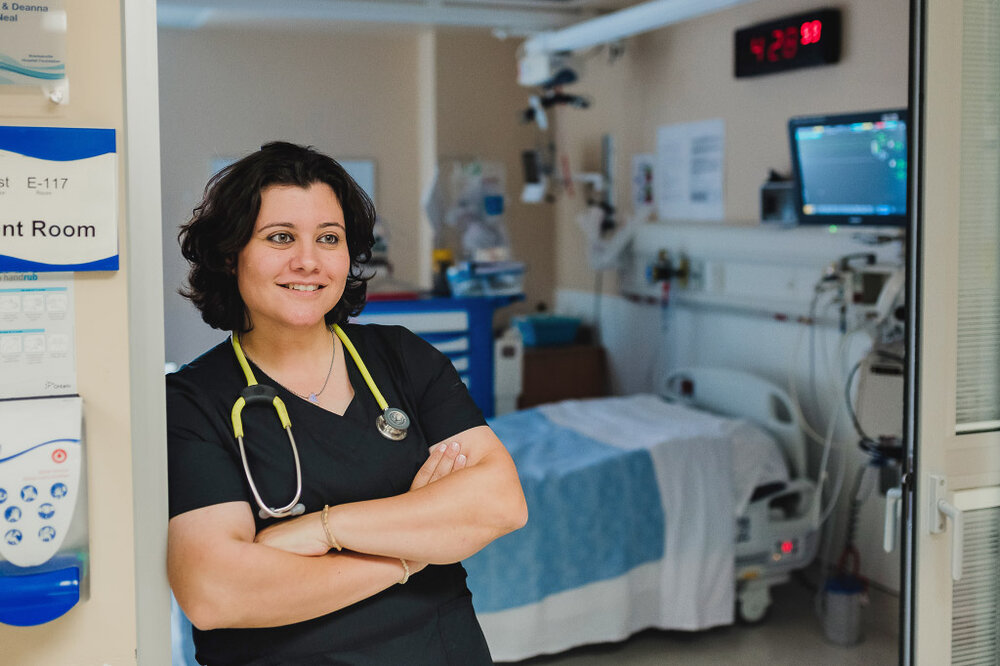When it comes to choosing a university for medicine, most students don’t know where to start. The process can be confusing, daunting, and often students end up overanalyzing the fact that this one choice can make or break their careers.
Choosing a university doesn’t have to be this hard. As a student, you should list down the factors that are most important to you. Some of the best universities in Canada for medicine offer their students a wide range of program options and a university life that helps them become competent physicians. Based on your list, you can narrow down the universities that closely fit what you want out of your academic experience.
Here’s a list of seven factors that you could consider when choosing a university for medicine.
1. Figure Out Your Academics
The first thing to do when selecting a university for your education is to check if they’re offering the programs that you’re interested in. What this means is, you’ll have to consider the multiple variations of a subject and how they translate into different programs.
For example, let’s assume you want to specialize in biology. A university might offer programs in biology, biomedical engineering, biochemistry, biostatistics, biomedical sciences, and life sciences.
You need to research all this and see which programs align with your academic goals. Start by answering these questions to get a better idea:
- What subjects do you want to study? What kind of programs is the university offering for those subjects?
- Would you like to get some work experience while you complete your education?
- Will you have the opportunity to study abroad on international exchanges?
- What are the university’s admission requirements?
- Will this program open up doors for further education such as business, a personalized master’s degree, or even medical law?
- Will you have the opportunity to participate in research during your studies?
2. Get a Feel for The Campus
Apart from your accommodation, you’ll be spending a great deal of time at the university campus. Outside of lectures, you’ll hang out with your friends, work on group projects, use the library, attend events, grab a snack, use the cultural and recreational facilities, and so much more.
Therefore, it’s crucial that you like the campus of your chosen university. Start by answering these questions to get a better idea:
- Do you want something calm or a busy urban campus?
- Do you prefer ivy coloured buildings or modern buildings with state-of-the-art facilities?
- Do you prefer something that’s more clustered together or a large campus spread across a wide area?
- Do you want to be part of a big school where you’ll get a chance to meet people from different lengths and breadths of the industry or would you rather have something smaller where the professors know your name?
- Do you like participating in extracurricular activities or your primary focus is just your education?
3. Figure Out Your Accommodation
Whether you choose a university in your own hometown or decide to go to the other end of the country, where you choose to live will have an impact on your overall education. Some of the best universities in Canada for medicine offer campus accommodation. However, you do have the option to find something off campus too.
Start by answering these questions to get a better idea:
- Would you rather live on campus or off campus with your friends (or other roommates)?
- Would you be comfortable sharing your apartment with a roommate?
- What services are most important to you? For example, laundry, food, WiFi, TV, games, repair services, etc.
- Which option (on campus/ off campus) best fits your finances?
- Do you have grocery stores and other essential services easily available from your home?
4. Figure Out Your Meals
Most students befriend junk food as soon as they move into university. While that may be the trend, as future physicians, you shouldn’t compromise on proper nutrition. Along with a strong academic program and great campus, do a bit of research on the meal plans as well as places to eat on campus. You might have to look around and try different things to come up with a more budget-friendly option of cooking your meals.
Start by answering these questions to get a better idea:
- Does your residence hall and school have a cafeteria with flexible hours?
- Does the cafeteria have a diverse menu? Are their healthy options?
- Is the university cafeteria sensitive to students dietary restrictions and allergies?
- Are there good restaurants/coffee shops nearby?
5. Explore The Extracurricular
Some of the best university memories happen outside the classrooms. Some of the best universities in Canada for medicine offer great extracurricular activities.
While the study of medicine demands long working hours, what you do outside of your classroom will play a huge role in determining the kind of physician you become. Find out what you’re passionate about and how you can explore that side of you in university.
Start by answering these questions to get a better idea:
- What kind of events does the university have?
- Do they have sports teams or book clubs?
- Does your university have a gym or a fitness program?
- Is there a local community that you can join as a volunteer?
- Is there a student government? Can you be a part of it?
- Are there any places nearby to celebrate your faith?
6. Overall Connectivity
While you will be spending most of your hours on campus, there will be opportunities where you’ll want to go out to get a meal together, attend an event, go shopping, or more. How easy is it for you to get from point A to B?
Start by answering these questions to get a better idea:
- How well connected is your university to the town?
- How easy is it to access public transport? Do you have stops closer to campus?
- Are there many stores and restaurants in walking distance?
- Does your university give you a transit pass?
- If you’re coming from a different province, then how close is the airport?
- Is it easy to find a shuttle service to campus and how costly is it?
7. Success In Career
The whole reason why you’re going to a university is to get a world-class education so that you can thrive in your career as a doctor. Therefore, it’s important to check if your university has all the resources needed to prepare you for the future.
Whether you want to start working immediately or further your education, knowing how your degree will help you achieve that next step is crucial.
Start by answering these questions to get a better idea:
- Does the university offer you career guidance? For example, improving your interview skills, polishing your resume, finding the right job opportunities.
- If you’re interested in extending your education, can your university help you with that?
- What kind of graduate and postgraduate programs does the university offer?
- What does the alumni have to say about the university?
- Does the university have co-op programs to help you explore career options?
Conclusion
The study of medicine isn’t easy and demands a significant investment of time and resources. However, the benefits are well worth it.
Canada has some of the top universities for medicine, so, whichever university you pick, you can’t really go wrong – it’s more about finding the one that will help you excel the most based on your own personal needs. The list above will help you better understand your priorities and help you make a decision.
This article offers general information only and is not intended as legal, financial or other professional advice. A professional advisor should be consulted regarding your specific situation. While information presented is believed to be factual and current, its accuracy is not guaranteed and it should not be regarded as a complete analysis of the subjects discussed. All expressions of opinion reflect the judgment of the author(s) as of the date of publication and are subject to change. No endorsement of any third parties or their advice, opinions, information, products or services is expressly given or implied by RBC Ventures Inc. or its affiliates.

Additional Reading
Dr. Nour Khatib left medical school for a finance career, but a persistent calling encouraged her to return years later and become an emergency physician.






